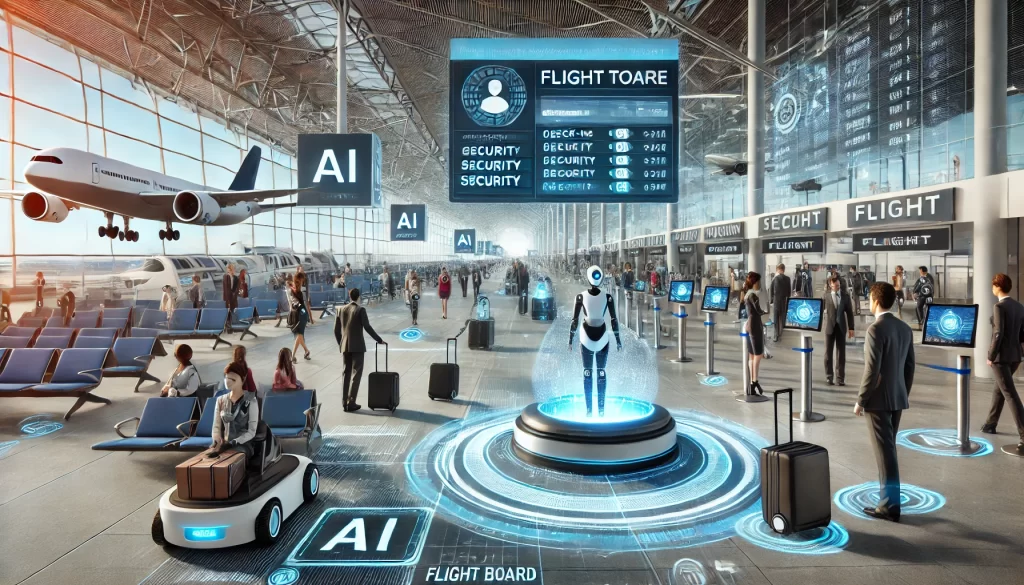How AI is Revolutionizing the Travel Industry
Artificial Intelligence (AI) is reshaping industries worldwide, and the travel sector is no exception. From AI-powered chatbots to personalized itineraries, AI is enhancing customer experiences, streamlining operations, and revolutionizing how people explore the world. This article delves into the impact of AI in the travel industry and how it is transforming the way we plan, book, and experience travel.
The Role of AI in Travel
AI is driving innovation across all aspects of travel, including flight bookings, hotel recommendations, and customer service. Here’s how AI is making travel smarter and more efficient:
1. AI-Powered Travel Booking Systems
AI has transformed the way travelers search for flights, hotels, and transportation by providing personalized recommendations and dynamic pricing.
✅ AI applications in travel booking:
- Smart search engines: AI-based travel platforms like Expedia and Google Flights analyze millions of flight options to offer the best deals.
- Dynamic pricing: Airlines and hotels use AI algorithms to adjust prices based on demand, seasonality, and user behavior.
- AI-powered travel agents: Virtual assistants like ChatGPT help travelers find the best travel options based on preferences.
🔗 Learn more about AI in travel booking
2. Personalized Travel Experiences
AI enhances travel by tailoring experiences based on user preferences, past behavior, and real-time data.
✅ How AI personalizes travel:
- AI-driven itinerary planners: Platforms like Google Trips suggest activities based on traveler interests.
- Customized hotel recommendations: AI analyzes user preferences to suggest hotels with desired amenities.
- AI in airline services: Airlines use AI to personalize in-flight services, such as meal recommendations and seat upgrades.
3. AI-Powered Chatbots & Virtual Assistants
AI-driven chatbots provide 24/7 customer support, answering queries and resolving issues in real time.
✅ Examples of AI chatbots in travel:
- Expedia’s virtual assistant: Helps users modify bookings and get travel updates.
- Booking.com’s AI chatbot: Assists customers with hotel reservations and recommendations.
- Airline customer service bots: AI bots handle flight inquiries, baggage tracking, and check-in processes.
4. AI in Smart Transportation & Navigation
AI optimizes transportation services by providing real-time traffic updates and route suggestions.
✅ AI applications in transportation:
- AI-powered navigation apps: Google Maps and Waze use AI to suggest optimal routes.
- Smart public transport: AI monitors traffic patterns to optimize bus and train schedules.
- Autonomous vehicles: Self-driving taxis, like those from Waymo, are revolutionizing urban mobility.
Benefits of AI in the Travel Industry
1. Enhanced Customer Experience
AI-driven personalization ensures that travelers receive recommendations tailored to their needs and preferences.
2. Cost Savings for Travelers & Businesses
AI enables dynamic pricing and cost optimization, helping both travelers and businesses save money.
3. Improved Operational Efficiency
Automated booking, chatbot support, and AI-driven analytics enhance the efficiency of travel companies.
4. Real-Time Assistance & Safety
AI-powered chatbots provide instant support, while AI surveillance enhances traveler security at airports and hotels.
Challenges of AI in the Travel Industry
1. Data Privacy & Security
AI relies on vast amounts of personal data, raising concerns about privacy and data protection.
2. High Implementation Costs
Integrating AI into travel services requires significant investment in technology and infrastructure.
3. Job Displacement
Automation may reduce the demand for traditional travel agents and customer service representatives.
Future Trends in AI-Powered Travel
1. AI-Powered Virtual Travel Assistants
Future AI systems will act as personal travel planners, offering real-time itinerary adjustments.
2. AI in Augmented Reality (AR) & Virtual Reality (VR) Travel
Travelers will be able to explore destinations virtually before making bookings.
3. Hyper-Personalization Through AI
AI will analyze real-time behavioral data to provide ultra-personalized travel experiences.
4. AI-Powered Sustainability in Travel
AI will help reduce the environmental impact of travel through optimized transportation and eco-friendly hotel management.
Conclusion
AI is revolutionizing the travel industry by making travel experiences smarter, more personalized, and efficient. From AI-powered chatbots to predictive analytics for travel booking, AI is shaping the future of tourism. As technology continues to advance, businesses and travelers alike must embrace AI-driven solutions to stay ahead in the evolving landscape of global travel.


